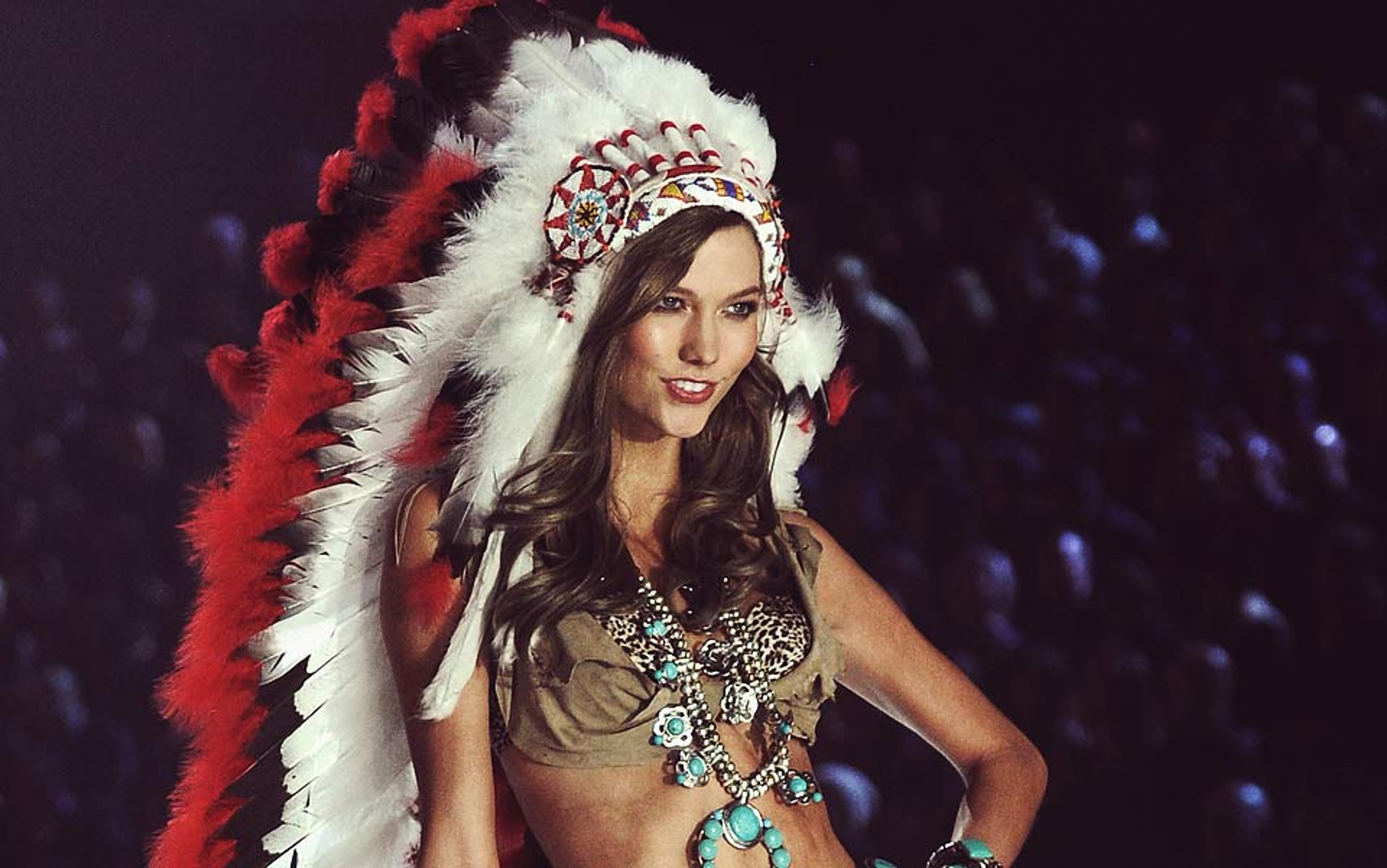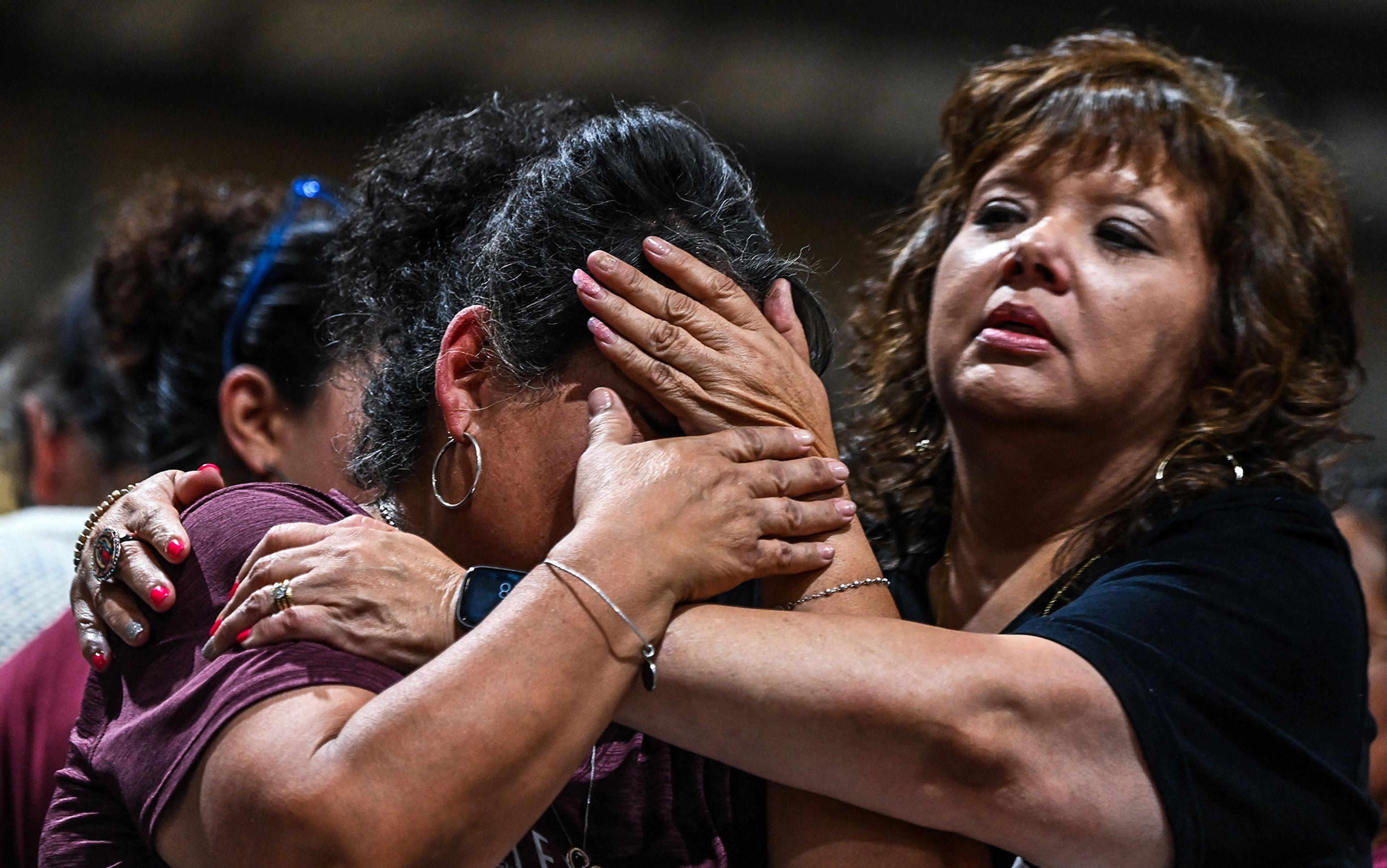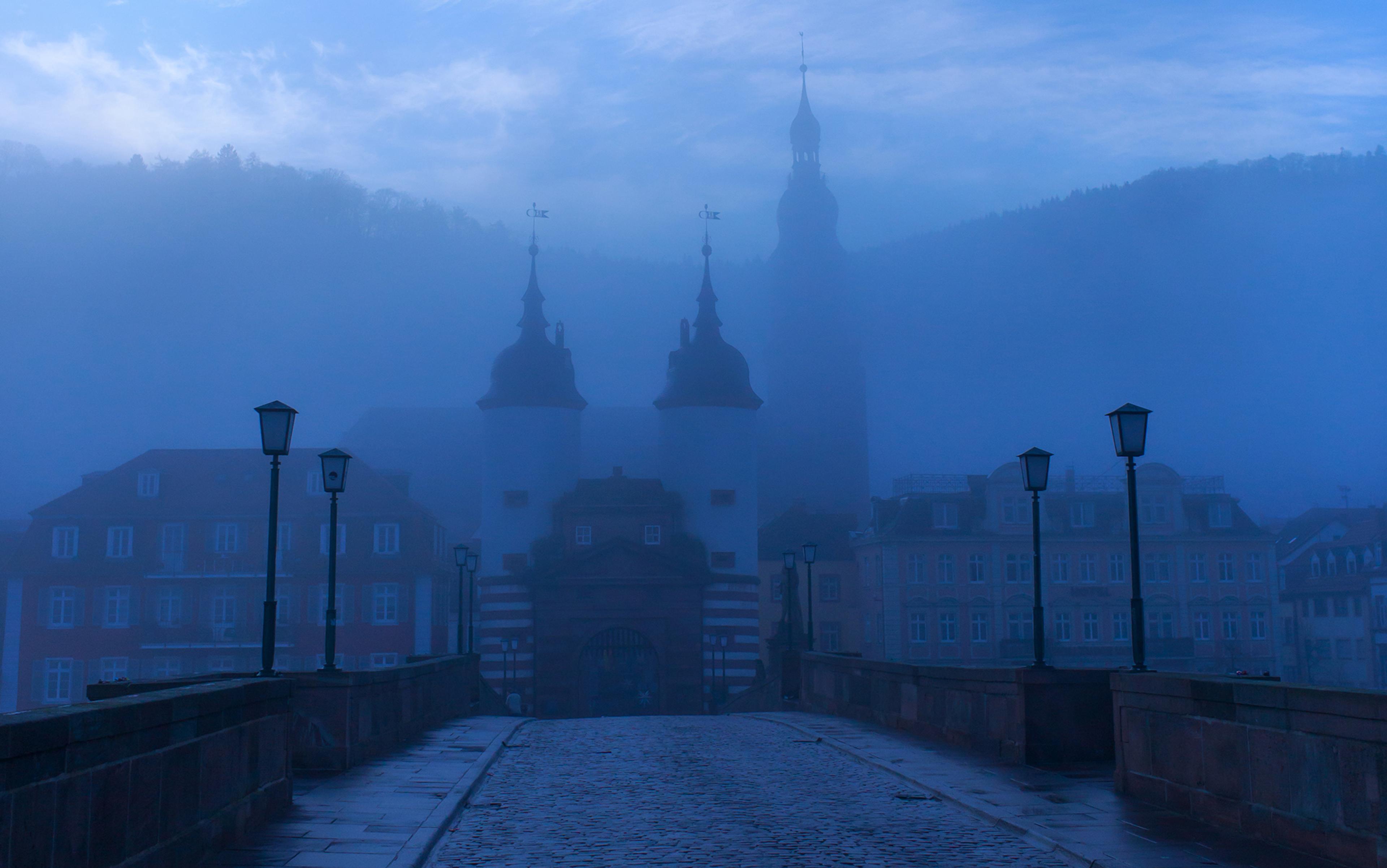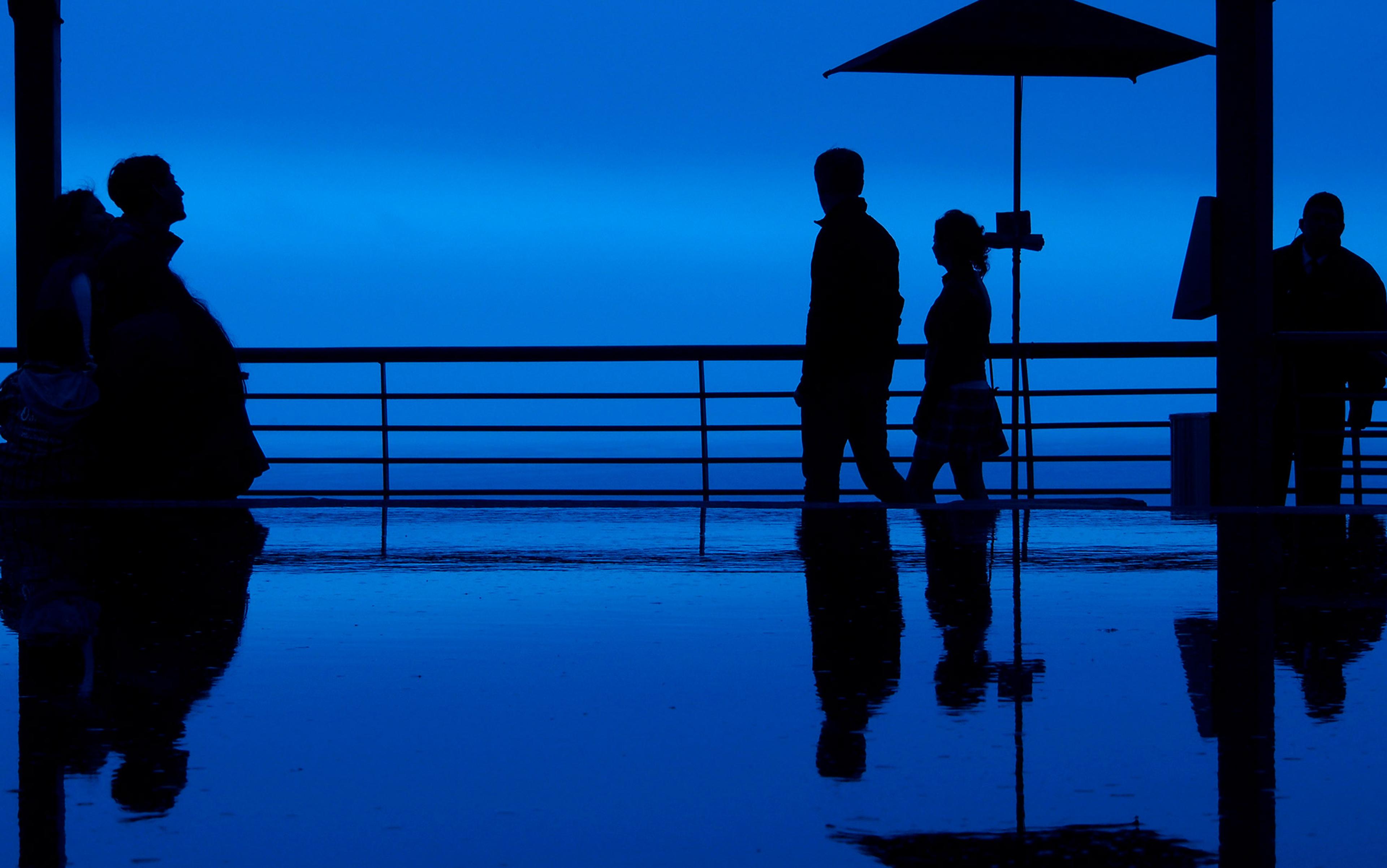I keep religious icons in my house, the Orthodox ones where Christ has dark, pensive eyes. When my friends come over, they sometimes ask why. It doesn’t seem to fit with the rest of my personality. ‘My parents are religious,’ I say. This makes no sense, because I put the icons up myself. My friend Daniel keeps icons up as well. ‘I’m not sure if I’m a believer, but if there was one true faith, it would be ours,’ he says.
Daniel and I both came to Canada as children, fleeing the Yugoslav war as Serbian refugees. The grief I carry about this – about our displacement, about the war, about an older history of turmoil and conflict and capture through empire – is unwieldy, inarticulate. It’s lodged within me like some half-completed archaeological dig. My icons are a marker of it, while family stories serve as its entryways. My aunt, struck by a stray piece of shrapnel in the neck as she made coffee in the kitchen. My grandmother, peering out from behind her white curtains, the pressure of constant vigilance eventually causing multiple strokes. My father, refusing to be separated from my mother and me, when soldiers ordered all the men off the bus as we made our way out of Bosnia.
These events don’t strike me as separate losses. They are more like perturbations on the membrane of a loss, itself so singular and strange that I don’t know how to behold it. Grief is a human universal, yet in the contemporary literature on grief, cultural bereavement is neglected. I find it difficult to describe the losses involved in being uprooted, in losing access to a culture that I’ve never fully known.
One reason may be that the feelings of losing one’s home country are poorly captured by most philosophical and psychological models. For instance, many philosophers claim that emotions must have intentional content, in that they must be about something. When I’m angry that the car alarm outside won’t stop ringing, I’m angry about the racket, or the fact that my neighbours aren’t doing anything about it. My own cultural grief is about something as well, but it’s blurrier, more amorphous. The object of my grief isn’t a single event or state of affairs; nor does it present itself clearly to me. Rather, grief and its object seem to have a tenuous association, almost as if my grief creates the atmosphere in which my thoughts and emotions drift and spiral.
Cultural bereavement seems to be a type of ambiguous loss – one in which the boundaries about what was lost, where it was lost, or when are unclear, partial or indefinite. Ambiguous loss often involves an interplay of absence and presence, according to the psychologist Pauline Boss. A parent with dementia might be physically present but feel emotionally absent. After a stillbirth, a mother might experience her child as physically absent but emotionally present. Cultural loss can feel similarly diffuse. It may relate to multiple events across long distances and timescales, and which shape or break the shared lifeworld of a community. No one person bears the whole loss, which can make it difficult for the griever to discern the focal point of their emotions. Similarly, cultural loss also seems to fall within the category of disenfranchised loss: a loss that isn’t recognised as such by one’s social milieu, and for which there aren’t established rituals or customs. Ambiguous and disenfranchised losses pose challenges for moving forward through grief, because they make it hard for the griever to pinpoint what is actually gone.
She felt like she had left a part of herself there and could never again retrieve it
The trajectory of experience after cultural loss differs from most existing models of grief. In psychology and philosophy, grief is portrayed as a response to a specific event – typically, the death of a loved one. Turning over the person in your mind, and reflecting on their life and legacy, are all considered crucial to processing their loss. Another aspect of the grieving process is adjusting. Other people are woven into our lives in complex ways that we often don’t notice until they’re gone, and so, as we grieve, we must confront and revise our hopes, plans and activities that involve them. We can no longer call them and tell them about our day, anticipate their arrival from work, or plan our next trip to see them. We must therefore reconfigure how we understand and act in the world in their absence.
Yet this doesn’t fit well with my own experience of cultural bereavement. On a family road trip as a teenager, I met a cousin in Las Vegas who said she vividly remembered and mourned her childhood in Bosnia. She felt like she had left a part of herself there and could never again retrieve it. That was her full self, her real self, and she isn’t that person anymore. But I don’t remember feeling that. I don’t remember ever grieving any of the events around my immigration in such a focused, active way. Sure, I recall repeated experiences of being out of place – of staring at my second-grade teacher on the first day of class, not understanding a word he was saying, yet hoping to grasp his intentions by burning his sounds and gestures into my mind. But these sorts of experiences didn’t seem to amount to much. If an adjustment to the loss has taken place, surely it’s reached a natural end-point. So why do I still feel grief?
Instead of thinking about loss in terms of its object, whether concrete or ambiguous, perhaps it’s more fruitful to look at the subject who goes through it. Leaving your country and rebuilding your life are what the philosopher L A Paul calls transformative experiences, radically changing the people who undergo them. In contrast with more superficial changes like dyeing your hair or (in many cases) getting a new job, transformative experiences are ones that create lasting changes in the perspective and values of those who undergo them. Think of having a child or falling in love for the first time. These can be deeply meaningful experiences that recentre your world. As a migrant, you might grapple with whether to maintain the kind of family and community roles and relationships you had in your home country, or whether to uphold the religion and political outlook characteristic of where you were born. In the process, you don’t simply acquire new insights or reflections, but must rework the fundamentals of who you are – what you care about, what you see as important or valuable, and the basis on which you make decisions.
Growing up in a diaspora community, the ethical dimensions of my cultural identity were explicitly impressed upon me. One example is the Balkan concept of order, or ред [red] – an informal but well-delineated set of rules about how to behave in social situations, such as when to host guests, or which gifts to bring on specific occasions. In addition, we constantly debated how best to navigate and adapt cultural and religious norms to our circumstances. Could we marry anyone we wanted? Name our children whatever we wanted? Or even just move our family’s saint day to the weekend? (The answer, in most cases, was no.)
Because I left Yugoslavia when I was so young, I never got to form myself as a definite ethical subject
Challenging the norms by which you live your life can provoke grief. In his book Grief (2022), the philosopher Michael Cholbi argues that you grieve things that cut away at what allows you, in the words of Christine Korsgaard, to ‘find your life to be worth living and your actions to be worth undertaking.’ When someone we care about dies, we lose not only a person we love and value, but also an anchor for certain commitments – to be together at family dinners, to keep a home together, or to practise medicine as a profession. Because we might have formed an identity around that person, the loss occasions grief. One could also imagine stretching the idea to other sorts of losses, such as the loss of a home culture.

The author’s family near Zenica, Bosnia in the late 1980s
But what if your identity is already in flux? Perhaps because I left Yugoslavia when I was so young, it’s like I never got to form myself as a definite ethical subject against which I could make out the shape of losses. The values and commitments associated with my cultural identity were taught and emphasised to me, but I was never quite sure what to do with them. What was ‘ours’ was frequently used to guide behaviour, but what ‘we’ do and don’t do seemed to stretch in arbitrary directions – from not wearing certain kinds of jewellery to not celebrating Thanksgiving (I’m pretty sure my parents thought this was a religious holiday). It was never something I could encompass in my mind as a clear, predictable set of norms. Rather than adjusting my behaviour to fit them, then, I increasingly questioned whether I was in fact part of the ‘we’. If we are defined by our participation in certain religious, social and aesthetic practices, I said to myself, at what point do I fail to fit in the category? As I grew into the person I was becoming, I wasn’t sure whether I had lost something along the way, or whether I had turned into some ‘other’ who couldn’t even claim the loss.
‘There’s this pressure of having to figure yourself out at the same time as tell everyone who you are,’ says Snježana, a therapist and community justice worker. Snježana immigrated to Canada with her parents at the age of 12, and now dedicates her therapy and consulting practice to wellbeing and social justice. She talks about how there are both external and internal pressures on immigrants to define their cultural identity. When she immigrated, non-Balkan people wanted to know who she was and where she was from. She would say she was Yugoslavian, but then they started questioning that. ‘It doesn’t exist anymore, so who are you?’ She would say she’s Serbian, but people didn’t understand that, since she’s from Croatia, not Serbia.
Snježana also talks about the particular context of the Balkan diaspora, which is still shaped by the Yugoslav conflict and the history that extends before that. There’s a reluctance for many people to address their own trauma, or conversely, a desire to identify only with their own ethnic group to the exclusion of other people’s narratives and pain. ‘I feel like we’re replicating the countries here, and I don’t know if people are replicating at the time where they left, or whether they’re replicating because they’ve gone back,’ she tells me. ‘And there’s a lot of resistance to Canadianness, to letting the Canadian culture integrate. I even have that resistance.’
The cliché of the immigrant experience is of being ‘in between’ two cultures – not fitting fully into either one, and perpetually feeling outside or on the periphery. ‘I’m third string, they rarely play me, I’m mostly on the bench,’ says Daniel, my friend. ‘But I’m still on the team.’
But I don’t think betweenness is where the grief comes from. Rather, it comes from how the experience of migration, particularly as a child, forces you to confront the contingent nature of identity much sooner than others do. Sooner than anyone should have to, really. I felt under distinct pressure to create, curate and choose what I would take from each world I was exposed to (itself a distinctly Western mode of identity-formation). My self-identity was so contested, and so much seemed to ride on the decisions I made. It’s as if I were standing on a connecting train platform, unsure of where to go. Being forced to consistently reflect on and relativise cultural norms gave me the feeling of being a perpetual observer – not even on the bench, but in the stands.
Snježana says she feels grief for the future she never had
Confronting the fragile and contingent basis of your own selfhood is meant to be a central feature of grief. We build our life upon people and places that are not eternal, but for most of our life we ignore that fact. When these people and places disappear, we have no choice but to face the frailty of our own identity. We must reckon with how our values are connected with persons and things, and how tenuous is the thread that holds it all together.
The pain of contingency is particularly disorienting for the culturally bereaved. The reality is that cultural practices have a great deal of randomness to them. You wear black after a death; you serve fish because your saint day falls on a Wednesday; you sit on the porch with your neighbour, drinking black coffee sweetened with sugar cubes. Yet these rituals are also built on an illusion of necessity. As a child, I was taught that these practices (hosting your neighbour, wearing black), built on these concepts (home, behaviour), are how you embody these values (hospitality, generosity, piety). When this operation cannot be taken for granted, when it’s revealed to be neither natural nor necessary, you lose a certain ground on which to create yourself as an ethical subject.
It’s all the more disorienting to confront fragility on the scale of a country. In 1989, my family friend Zorica, another Yugoslav refugee, told her father-in-law to get his money out of the bank. ‘It’ll be fine, there’s no need for that,’ he said. Later, he told her: ‘I never thought the country could collapse.’ A year into the COVID-19 pandemic, my friend Boris was reminiscing with my dad about how naive they were, thinking it would all blow over in a few weeks. ‘Yeah,’ my dad said, ‘we thought that during the war, too.’
Snježana says she feels grief for the future she never had – one in which she didn’t have to do so much questioning and healing to understand her identity. Yet it wasn’t immigration that foreclosed this possibility. ‘Because of all the historical events that have taken place in our lands, we were never afforded the opportunity of just existing within an identity that we don’t have to consistently examine and question and figure out where it fits,’ she tells me. ‘That is the historical context… And then there is grief that the cycle keeps repeating too. In 100 years, will that be the same narrative in the Balkans?’
Such grief might never resolve, exactly, but perhaps there’s a way of deriving meaning from it. Jonathan Lear’s book Radical Hope (2006) looks at the case of the cultural devastation of the Crow Indigenous people of North America. At the turn of the 19th century, the tribe was under threat from white settlers encroaching on their land, as well as from several enemy nations. The colonisers had declared tribal warfare illegal, and most of the game previously hunted by the Crow had been killed. As Lear describes it, the loss that the Crow faced was not only the loss of culture, rituals and practices, but the loss of their world, the loss of the field of possibilities in which their life made sense. What it meant to be virtuous as a Crow was wrapped up with one’s skill as a warrior and the activities that sustained the warrior way of life. A Crow could easily imagine success or defeat in battle, but could not imagine neither success nor defeat but a world in which battles for territory and movement along with the buffalo did not take place.
The Crow chief, Plenty Coups, confronted his people’s trial with what Lear calls radical hope. The standard or classical view in philosophy is that hope is a feeling with a clear object: a future outcome that a person wants to occur and believes is possible. Yet this doesn’t capture the response to the losses faced by the Crow. Lear describes Plenty Coups’s belief that: ‘if they followed the wisdom of the chickadee (whatever that would come to mean) they would survive (whatever that would come to mean) and hold onto their lands (whatever that would come to mean).’ The hope of Plenty Coups is a hope directed to an outcome not yet in view. When a person has radical hope, they don’t yet have the concepts to understand what they are hoping for. Life may change so much that the outcome will only be recognisable to them after it occurs.
Few immigrants today face genocide and cultural devastation on the scale of the Crow. But the concept of radical hope can still illuminate the structure of grief in cultural bereavement. In cultural grief, as in radical hope, a person is directed emotionally to something that they can’t fully grasp. I grieve losses related to migrating, to my culture, to my family. Yet my emotions themselves do not open out onto those specific losses, as a window looks out onto a street. In grief, a loss takes shape against my present life, especially in terms of what I care about, what defines me and what is important to me. As these elements are in constant formation, I don’t quite know the significance of the loss. And yet still I grieve, knowing it is significant.
Because I wasn’t like most people in my community, I couldn’t really be Serbian
There is a second sort of hope relevant to cultural loss, what Gabriel Marcel in Homo Viator (1951) calls absolute hope. This is not directed to any specific outcome. It is an open, patient waiting for the good, which can be known only upon experiencing it. As Marcel describes it, when we have patience for someone else, we respect their internal rhythm. We don’t try to force them to our rhythm, nor do we merely abandon them to their own devices. We have confidence in the other person in a way that respects their pace. It is this quality of patience, of not rushing, that is relevant to the process of the transformation of identity in cultural bereavement.
I used to think that being Serbian meant being like most people in my community. Because I wasn’t like most people in that group, I couldn’t really be Serbian. As an adult, though, I became closer with my cousin Milica, who grew up in Serbia and immigrated to Germany only after university, where she studied psychology. These days she works in the psychiatric wing of a hospital, and sends me her photos and the electronic music she makes. We talk on the phone, complain, and try to psychoanalyse ourselves, our families, Serbians, Germans, Canadians, everyone. There is an understanding between us. I used to think that my alienation from my culture was a symptom of a fractured identity, or a failure to embody one. It wasn’t until I talked to Milica that I realised that alienation can be a way of relating to a culture from the inside, too.
‘I feel like there’s a lot of moulding that takes place inside the diaspora, and a lot of adaptation to things rather than just the freedom to show up as your whole self, to show up as you are,’ noted Snježana. Cultural grief connects with hope in that, like radical and absolute hope, it is directed to an object that becomes clearer only as we patiently transform our perspective.
I used to feel like my ‘self’, whatever it was, was too small, too fragile, to bear the forces of culture and history vying for me. But what I grappled with, we all tend to face at some point – the gaps, the differences, the randomness of who we are. It can be painful, but on the other side of such questioning, you get the satisfaction of a self that’s truly your own, of one that’s thoughtfully and actively created.
One of my friends, who’s into the occult, tells me that he appreciates the beauty of Orthodox icons. They’re more ‘metal’ than the Catholic ones, he says – as in, edgy or punk. Years ago, it would have bothered me to reduce icons to their aesthetic value, or to reduce Orthodoxy as a whole with labels like ‘traditional’, ‘ritual-based’ or ‘patriarchal’. My own relationship to religion was complicated, and it frustrated me when others compressed and simplified it. It hurt that people couldn’t see all the pain, beauty and violence bound up with it in the Balkans. But today, when someone admires my icons, I can say lightly: ‘Yeah, they’re cool.’ Not everyone’s identity is marked by war, by splintering, by inchoate loss. Each of us is historically formed in a way that’s clumsy, fortuitous. Our task is to accept that, and to become real to ourselves in spite of it.






